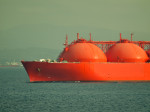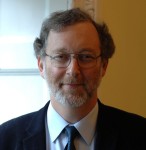How will the European gas consumption evolve in this decade?
Do you think the existing imbalance between supply and demand in Europe will be alleviated or exacerbated by new international pipelines like Nord Stream, South Stream or Tanap?
The imbalance between gas demand and supply is not an exclusively European issue. Asian demand has tightened European gas markets, but this situation could be eased if the Chinese economy slows down or Japan reopens some nuclear stations. US gas prices could rise, hindering LNG exports post-2015, or could remain low, accelerating exports. All of these variables may be more important than new pipelines. Europe does not want to increase imports of Russian gas above 2008 levels but, irrespective of how many pipelines are built, these deliveries could increase if Russia reduces prices significantly. No Southern Corridor gas will be available before 2018, and even then new volumes will not be substantial for at least a decade.
Are we going to see the end of the oil-indexed gas pricing? Oil indexed pricing is being phased out in Europe and is being questioned in Asia. Already, about half the gas sold in Europe is at hub prices. This will continue despite opposition from some international sellers, notably Gazprom and Sonatrach.
Do you think gas could become a global market with a global price?
Pricing, alternative routes and sources, antitrust procedures: many issues are dividing Russia and Europe. Do you think Moscow and Brussels will be able to work them out?
Some troubles, such as pricing, can be resolved. However, a major problem is the 3rd Package of measures being introduced in the EU, which is fundamentally changing the rules of gas transportation within and between countries, is creating problems for Gazprom’s long-term contracts. The process is still unfolding and will take most of the 2010s for the details to be fully clarified across all EU countries. It is a difficult test for EU gas companies and a bigger challenge for Gazprom.
Do you believe in the potential development of a “gas OPEC”?
It doesn't seem probable for the foreseeable future. For North America it is irrelevant, because it is not seriously dependent on gas imports. In Asia there is a lack of interest from the leading producers to participate in the Gas Exporting Countries Forum. Europe is most at risk from any “gas OPEC”, but this would require close cooperation on export volumes or prices between at least Russia, Qatar and Algeria, and this seems unlikely at present. Export cartels spring up when prices are low rather than when they are high, which is the current situation.
Professor Jonathan Stern is Chairman and Senior Research Fellow of the Natural Gas Research Programme at the Oxford Institute for Energy Studies, UK.
– This interview reflects the key points of Dr Stern’s talk at the WEC Italy conference, “Italy’s natural gas market: moving towards a new market structure”, held in Rome on 27 November last year.
– Natural gas markets and geopolitics will be amongst the topics to be discussed at the 2013 World Energy Congress, to take place in South Korea this October. www.daegu2013.kr







